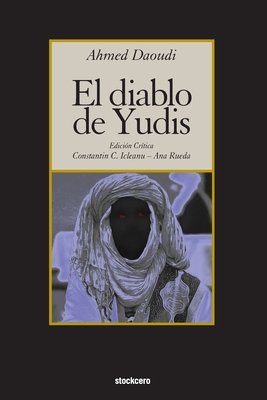El diablo de Yudis (The devil of Yudis) emerges from the phenomenon of Moroccan immigration to Europe, giving the emigrant a voice. Daoudi reveals a magnificent literary style, powerfully expressive, and the narration flows naturally between bitter and hopeful tones. His language, agile and direct, reveals a literary quality deserving attention. This first work by Daoudi offers great sociological richness in terms of the harsh situation it poses from the perspective of Moroccan immigrants and the tribulations they must endure to survive, only to end up crushed by the dominant economic and political power that be, regardless of the country in which they live and try to prosper. The novel portrays the emigrant, dispossessed in his native country, incapable of living a decent life in it, and persecuted outside of it for trying to escape his disastrous destiny. Daoudi treats the migratory experience not only as a dangerous journey, but as a necessity due to extremely poor conditions that force the decision to leave. In the novel a street storyteller tells the story of "The Devil of Yudis" before a circle of passers-by in the market square of Fez. The narrative of the storyteller takes place in Yudis, an imaginary island ruled by the Arab Sheikh Ibn Manjalí Ilias XXI, who receives military aid from the continent to defend the island from the devil and destroy him. But the devil incarnates in the sheikh, and continues to reappear in unsuspected human configurations, so the military expedition is tasked with eliminating the elusive entity. The street storyteller is not just a framework to the story, as is common among Moroccan writers, but he himself becomes the protagonist of a second story intertwined with that of the devil: the story of the emigrant. With this edition, professors Constantin Icleanu and Ana Rueda aim to improve the reading experience, contextualize the text in the field of contemporary immigrant literature and make it available again, both for specialized and non-specialized readers. The Introduction provides two large sections: (1) CONTEXTS: the historical, literary and cultural framework for a better understanding of the novel; and (2) ANALYSIS, where the two uses of fabulation in El diablo de Yudis are elaborated: the resource of the absurd and the figure of the devil in the framework of various religious references. Thus, they have included a substantial introduction, corrected errors in the text of the novel, and added explanations at the









